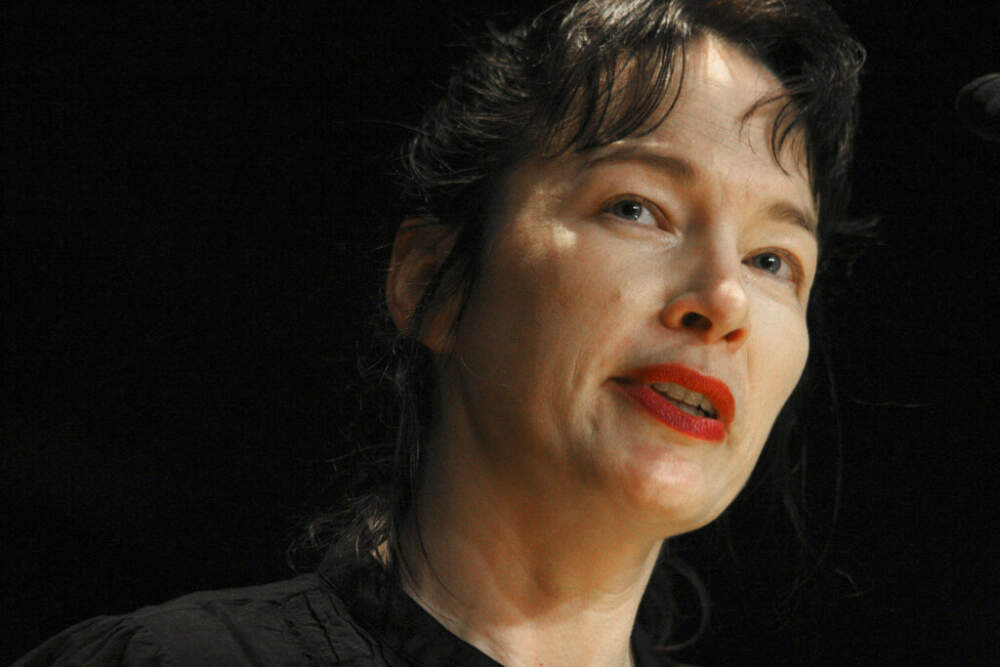Advertisement
Commentary
The man Alice Sebold ID’d as her rapist was exonerated. But her memoir is still important

A few years ago, I started teaching a class on trauma. The concept is everywhere these days, so the main challenge in building the syllabus was not what to put in but what to leave out. Yet there was no real debate for me about one title: Alice Sebold’s "Lucky."
"Lucky" tells the story of a rape the author suffered during her freshman year at Syracuse. As memoirs go, the book is nearly sui generis; despite the ubiquity of sexual assault — especially at colleges and universities — there are very few first-person accounts written by victims. Accordingly, "Lucky" offers a vital perspective both on the trauma of rape and on the still-unfolding sexual assault crisis on our campuses.
But "Lucky" is also a legal thriller that tracks the arrest and eventual conviction of Anthony Broadwater, Sebold’s alleged rapist. And the memoir was pitched into controversy in 2021, when he was exonerated nearly two decades after finishing a 17-year prison sentence.
Rachel Aviv’s gripping, maddening profile of the pair, which appeared recently in the New Yorker, gives us a fuller understanding of the ways their lives have played out since Broadwater’s conviction was overturned. The piece is full of startling revelations about the flimsiness of the case against him, the trauma he suffered after his false imprisonment and Sebold’s creeping sense of despair over her complicity in both.
Shortly after news of the court’s reversal broke, Sebold’s publishers pulled her book from shelves. And in the months since, a flock of culture writers (Sarah Weinman and Laura Miller among them) has descended to offer scathing re-readings of the book. The verdict seems clear: "Lucky" is untouchable now, or at least unteachable.
But to my mind, such a sentence is either premature or unnecessary. Indeed, it’s my growing sense that I need to keep teaching "Lucky" — and my students need to keep reading it — because it’s even more important now than it was before.
The first reason is perhaps the most obvious: "Lucky" is primarily a story about the trauma of rape, and as such, it remains extremely valuable both for survivors and allies. In her willingness to lay bare her own suffering, Sebold bears witness to other assault survivors who can’t find the words to describe their own. And her portrait of the psychological aftermath of rape is so evocative that Judith Herman quotes "Lucky" in one of the most important books in the field, "Trauma and Recovery."
And yet we cannot ignore the trial with which the book culminates — or the miscarriage of justice it produced. What to do with those? In "The Right to Sex," the British philosopher Amia Srinivasan laments the global epidemic of sexual violence but questions the appropriateness of carceral responses to it. Certainly it is tempting to believe that harsher penalties and longer sentences might help deter sexual predators, but Srinivasan argues that such tactics often serve only to exacerbate the structural racism that warps our judicial system — and to send both guilty and innocent men of color to jail with disproportionate frequency.
I can think of no more illustrative example of this trend than "Lucky." As Aviv notes, when Broadwater’s trial began, the Syracuse court system was reeling from a string of failed rape prosecutions. Attorneys and judges viewed Sebold’s case as a way to right the ship. And in their rush to judgment, they put an innocent Black man in prison and let the true perpetrator roam free, likely to this day.
As we learn from Aviv’s profile, Broadwater’s time in prison was nothing less than horrific. Early in his sentence, a close friend was killed while standing right next to him in the kitchen. And every time Broadwater was transferred to a new prison, he faced new threats to his own life. He soon learned that the best way he could avoid violence was by giving transcripts of his appeal to gang leaders in hopes that they would see his innocence and shield him from attacks. He would then prepare makeshift weapons to use to defend himself in case the ploy didn’t work.
Since his release, Broadwater has suffered symptoms that comport with a PTSD diagnosis. He always makes sure to be home by 7 p.m. to avoid being out at night without an alibi. And sometimes on hearing news reports of a sexual assault, he has a physical reaction. As he told Aviv, “You get tense, you start sweating, and then the adrenaline comes.” Or in other words, Broadwater is as telling a case study for trauma as Sebold.
My last reason for continuing to teach "Lucky" is likely the most important. My students often walk into class with clear-cut ideas about trauma and victimization. People who survive tragedy have a certain purity about them: Because their pain is so deep, their cause must be just. But morality is seldom so clear or so simple.
As Rachel Kushner recently noted in her commentary on the Alex Murdaugh trial, there are bad people and good people in the world, but there are many fewer of each than we might imagine. Most are a more complicated mix of right and wrong, victim and perpetrator. We see this most starkly in veterans so recently returned from Iraq and Afghanistan, many of whom suffer from both PTSD and moral injury, or the psychic pain of perpetration.
We see it too in Alice Sebold, a victim whose life was ruined by a rape — but whose subsequent actions turned someone else into a victim. And in her, we may see a bit of ourselves too.
Joshua Pederson is associate professor of humanities at Boston University. His previous opinion pieces have appeared in the Washington Post, the L.A. Times, The Boston Globe, the Chicago Tribune, Salon and Harper’s Magazine. His latest book is "Sin Sick: Moral Injury in War and Literature."